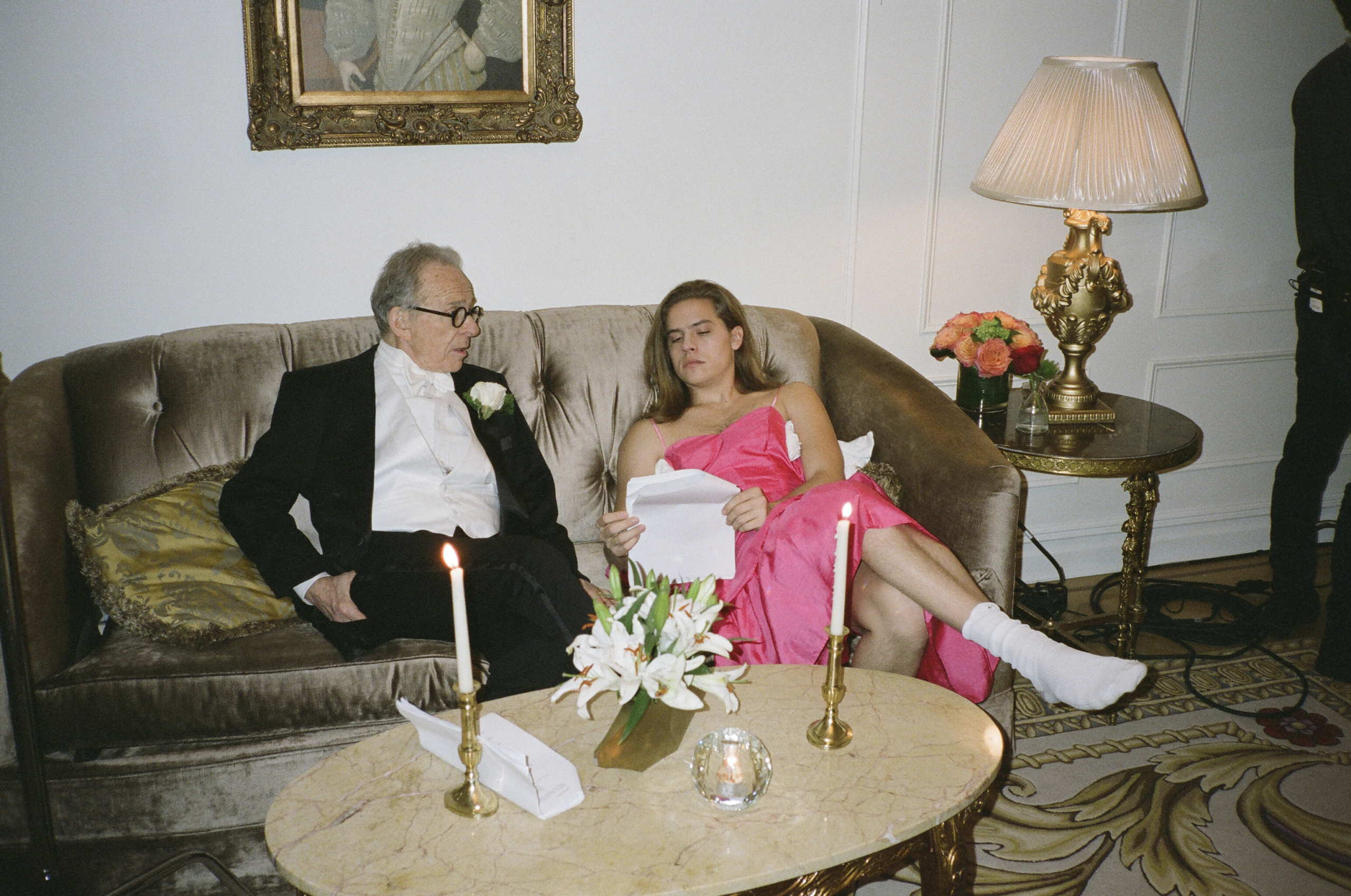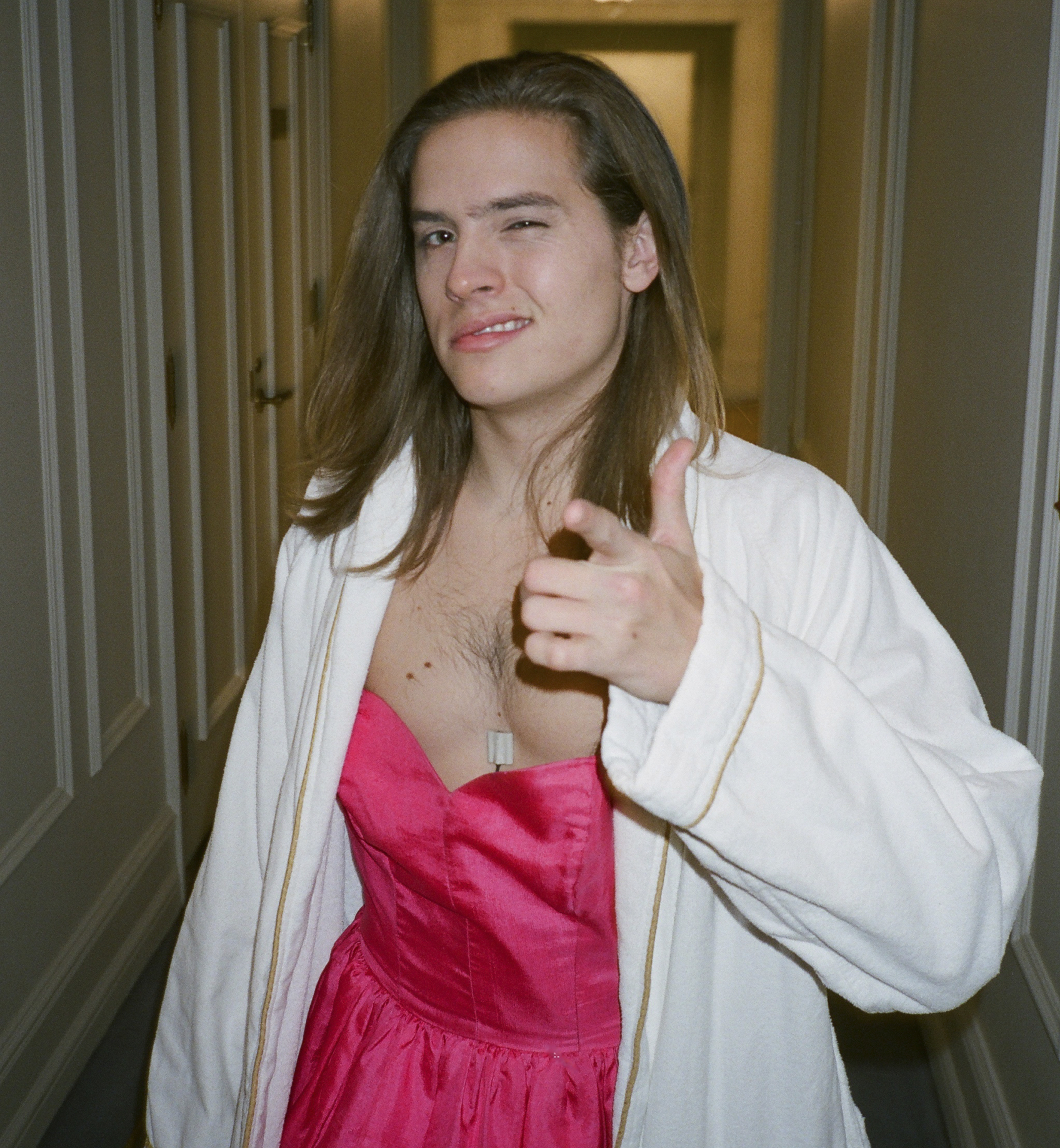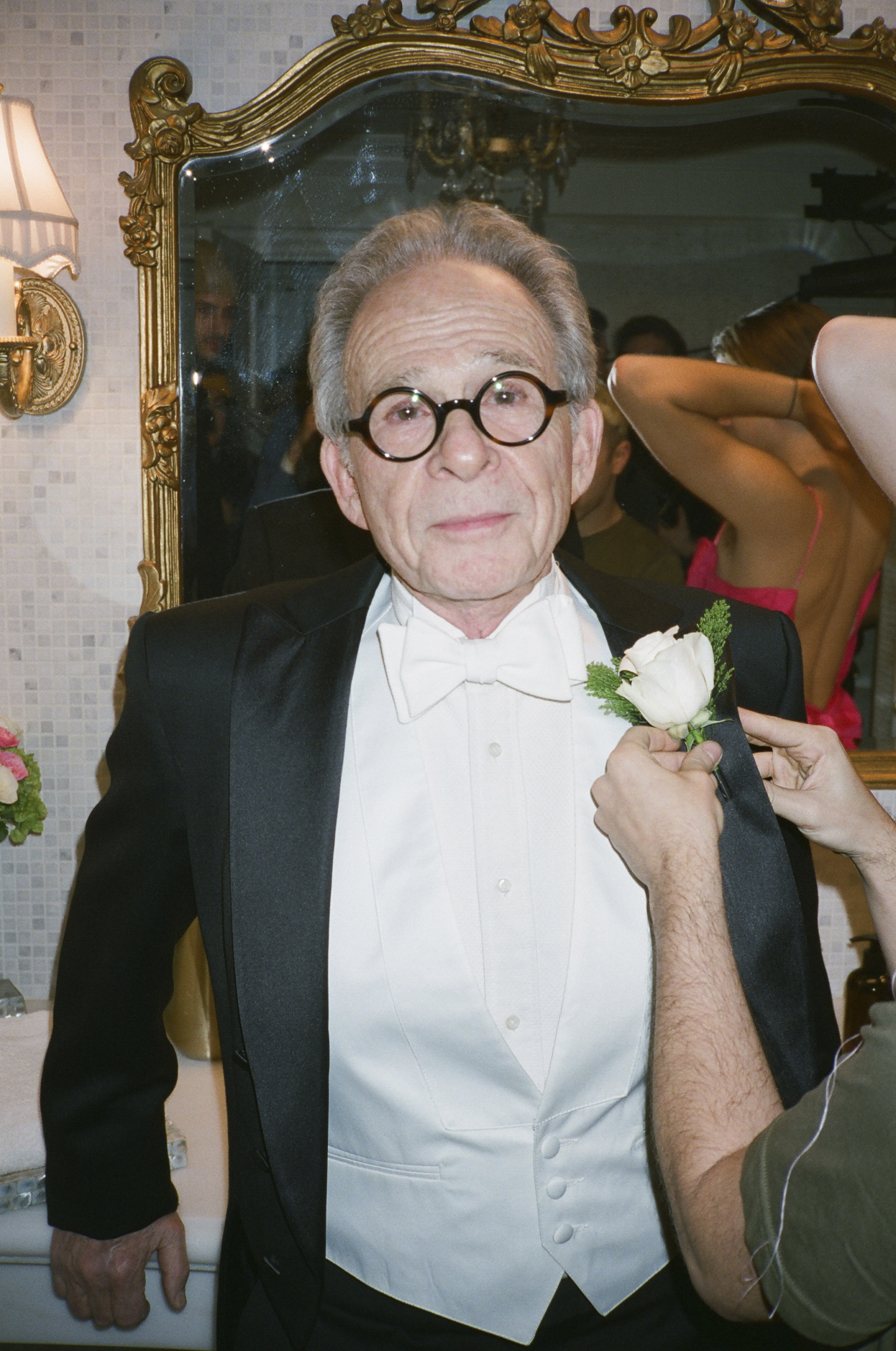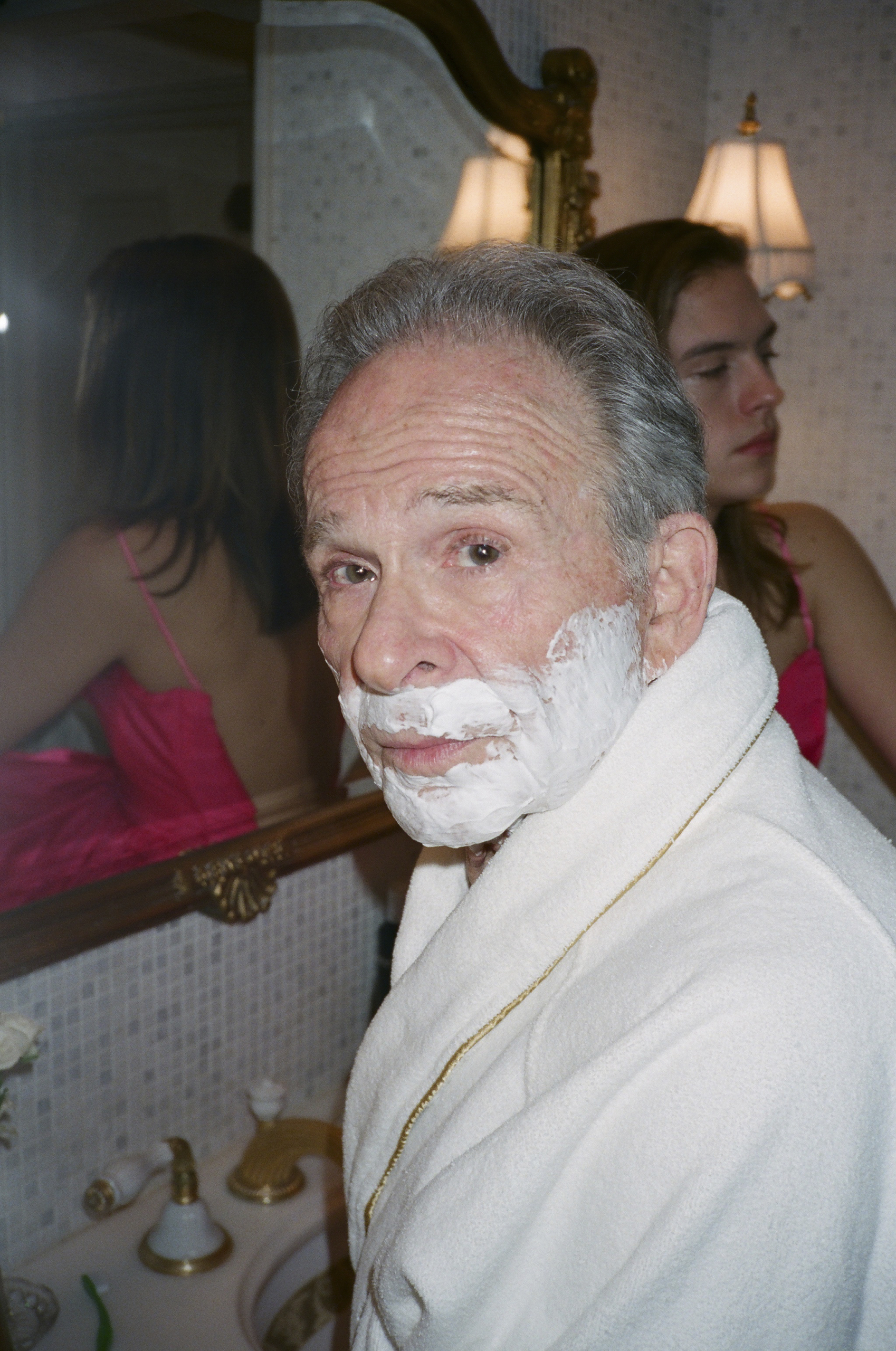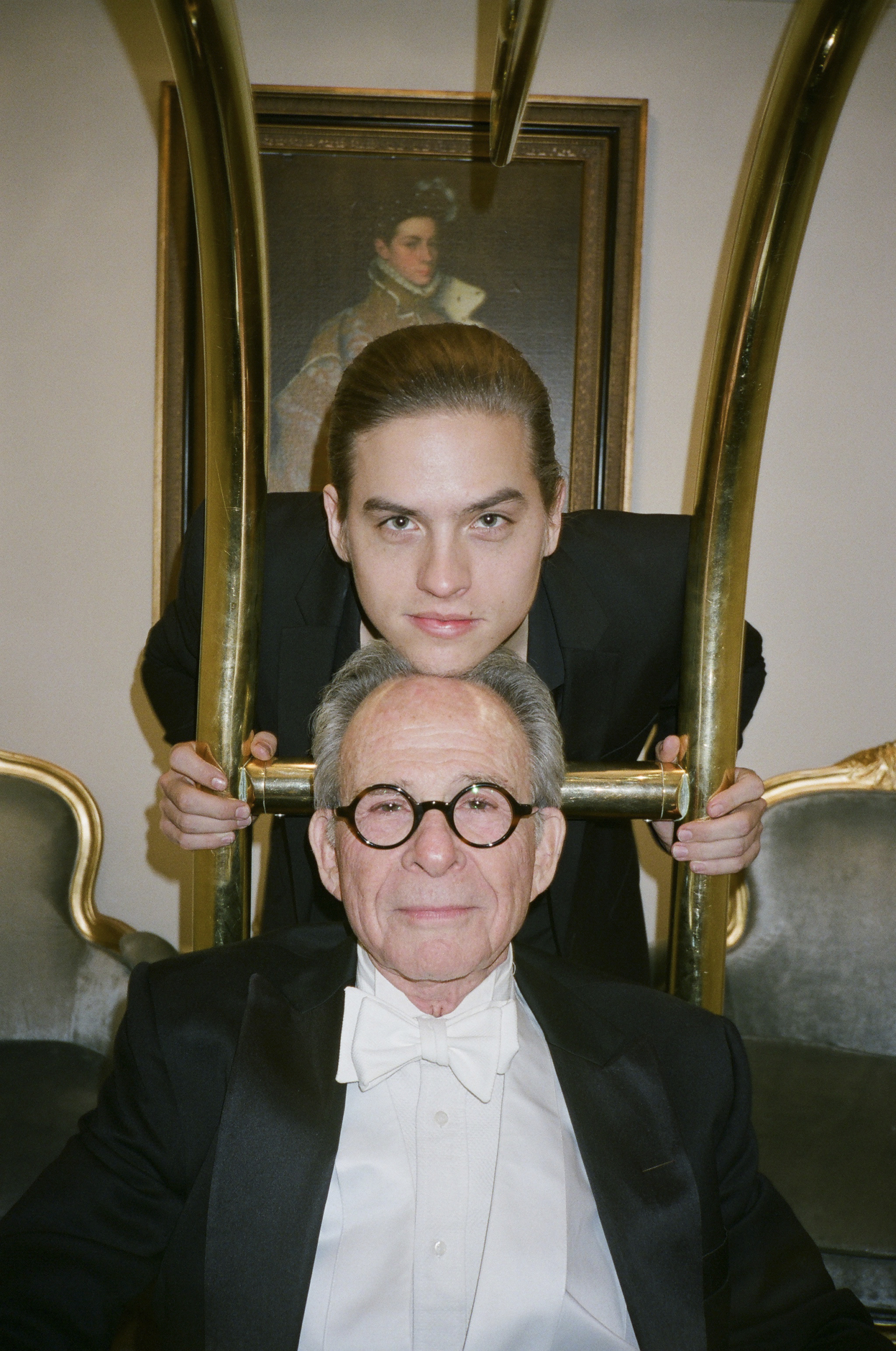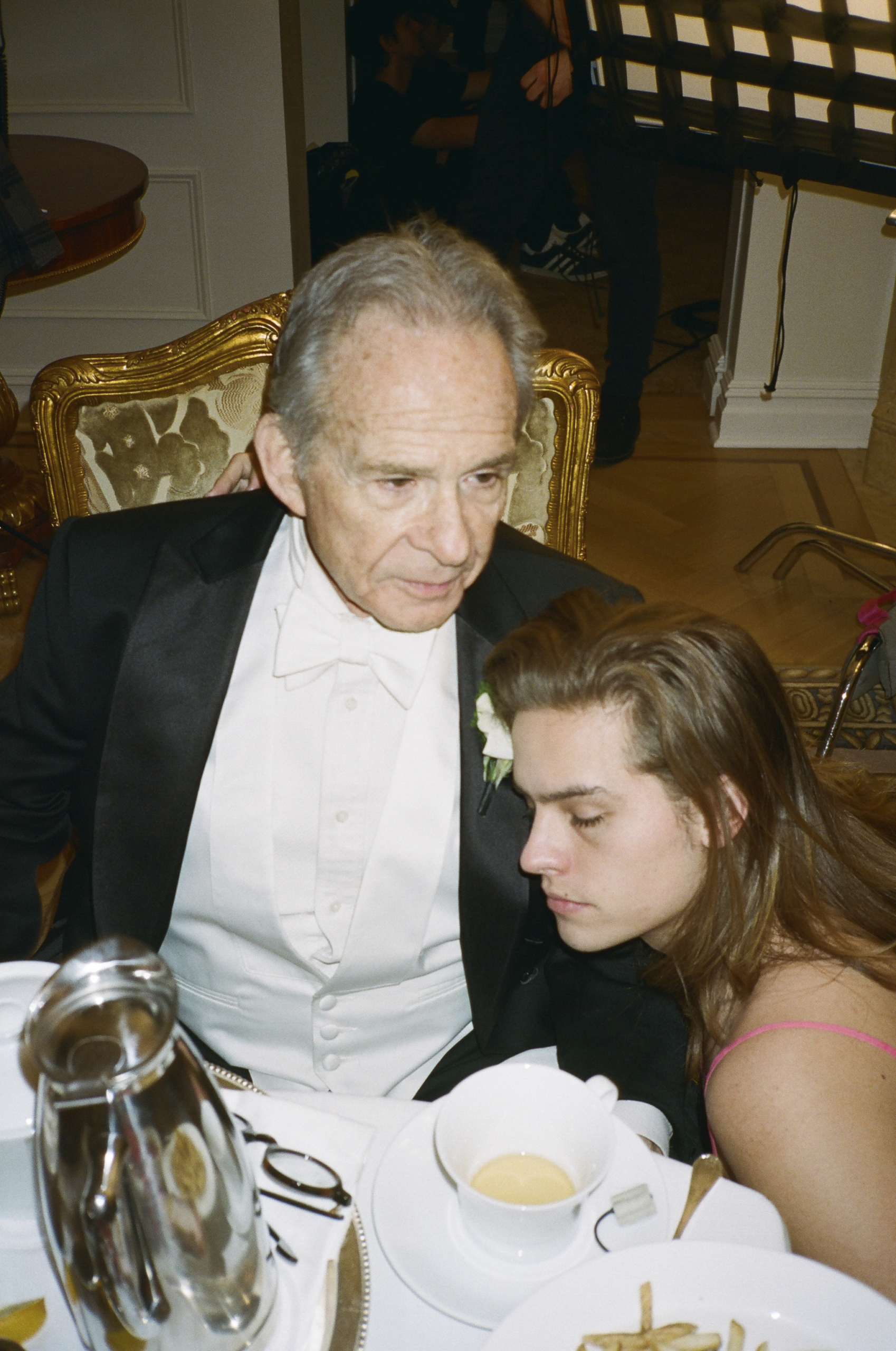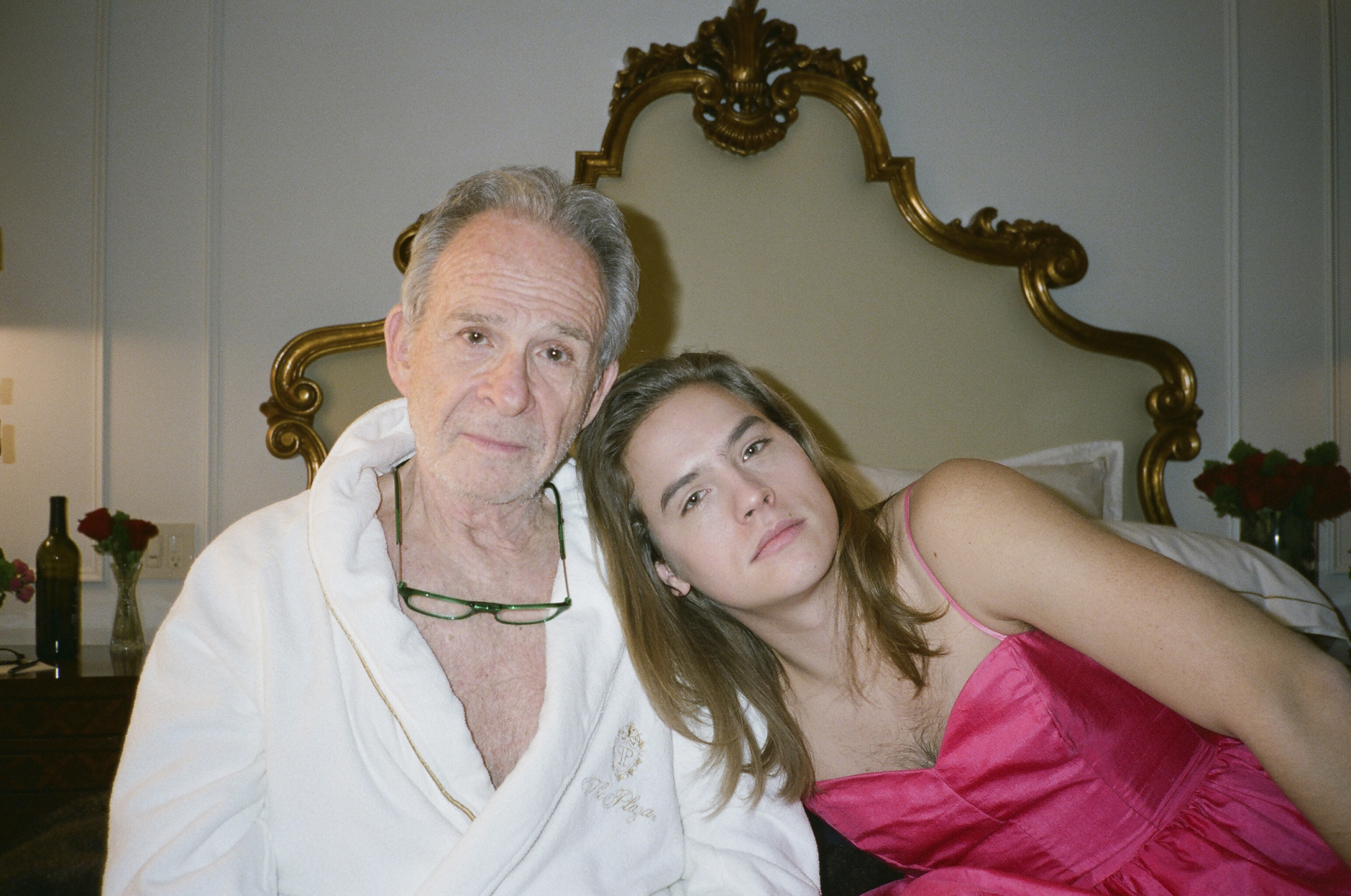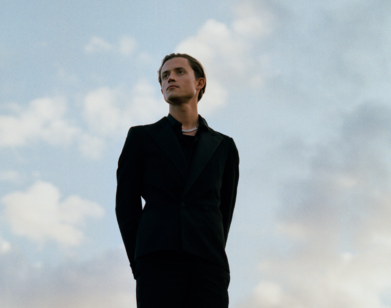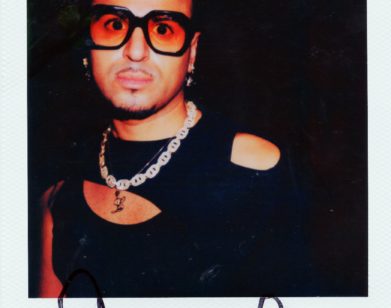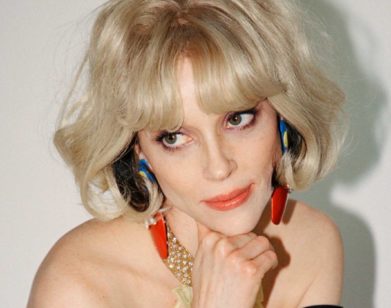room service, please
Dylan Sprouse Returns to the Hotel Suite—This Time, in a Pink Dress
The term “daddy,” once used almost exclusively by children to refer to their fathers, has transcended its meaning in the cultural lexicon. (Need we say more?) With his short film Daddy, out Friday, the 24-year-old filmmaker Christian Coppola (yes, he’s related) is taking his aim at the cultural phenomenon. The film, which stars Dylan Sprouse of The Suite Life fame and Tony award-winning actor Ron Rifkin, features Sprouse as the male escort hired to help an 80-year-old man celebrate the anniversary of his wife’s death, taffeta dress and all.
Instead of the plain-old daddy-gives-baby-takes relationship, the film subverts power dynamics, exploring love, desire, seduction, and death. A fleeting moment scene inside the hotel’s elevator—a dolled-up guest muttering, “You and your daddy look very handsome tonight”—invites the audience to question their own assumptions, about both the characters and themselves. Humanity is a complex machine, and Coppola beautifully tackles it in less than 20 minutes.
The young director grew up in a wealthy suburb of Dallas, while Sprouse came of age inside the “Disney machine,” as Coppola calls it. Their paths crossed while studying at New York University’s Tisch Film School, where Sprouse fell in lust with the script. With Sprouse’s return to acting (in a hotel, no less), the friends discuss Daddy, muses, and what it’s like to kiss Rifkin. – ERNESTO MACIAS
———
DYLAN SPROUSE: I’m sorry I’m so late. It’s my bad.
CHRISTIAN COPPOLA: You thought you’d seen the last of me.
SPROUSE: I’ve decided that I’m going to be fashionably late for phone calls. It’s this new decree I’m doing.
COPPOLA: It’s a big power move. Letting us know who’s in charge of this relationship. He’s lighting a cigarette and he’s putting his shoes on the table. Dylan, when you first signed on to Daddy, you were just starting to dip your toes back into acting. I think it was about two-and-a-half years ago. I’m curious how it felt to be in a film that, for the vast majority, takes place in a hotel? Because I would say this character is definitely a far cry from your Zack and Cody. We were doing the shot where you’re pushing Ron [Rifkin] down the hallway. You said, “Oh! I’ve done this so many times in my career.” I realized the connection and everything sort of came full circle.
SPROUSE: In truth, I didn’t think much about it. I know that’s not a great answer. In terms of my criteria for jumping back into the saddle of acting, I was trying my best to find roles that I felt like were interesting for me. The setting really never crossed my mind in terms of its relevance to my past.
I was really more concerned with what the story was saying. Christian, we discussed in other moments what might accidentally seem like an homage to what I was doing in the past, and we stayed away from it. I think that was an on-set decision mainly. I’ve come to look at myself as an actor more interested in the roles than the characters that I play, which were a far cry obviously from what I was doing in my past.
COPPOLA: This idea of when you exist in the pop culture hemisphere, or a piece of your work is so known by a certain cluster of people, inevitably, when they watch other work of yours, they might bring that knowledge in. I re-watched the film recently after having not seen it for a long time since we screened it last summer at the Tribeca Film Institute. I was so moved by how subtle your performance was, and how grounded and confident you were in that role. I think when people read that you’re playing a real escort, they might really expect a very specific kind of character: an overtly sexual, or an overtly outlandish caricature. What you created with Ron is very rewarding for me to watch. What drew you in to the project?
SPROUSE: That’s a good question. Well, first off, I appreciate the kind words. It was certainly easier to have a good performer across me. Ron is absolutely excellent in every sense of the word. Any actor will tell you that acting across from somebody great always affects your performance in a positive way.
In terms of the selection of the character, I think it’s a testament to you. You and I have known each other since college, and you’ve improved a lot, both as a director and a writer. When I read this story, this was the second script you sent me, and it really affected me. It’s almost cliché, but when you’re an actor, sometimes the dialogue jumps off the page at you. It just makes the performances all the easier. It certainly made my choice to become this character easier. I feel like for me coming out of college, after a very long break away from acting, this was certainly a character that I had not seen recently in any projects or scripts that I had been sent.
Also, Christian, I found your collaborative efforts to make this project really noble. I think both Ron and I were collaborative with you, in that we were felt like we could bring these characters to life, but also make this simply the best that it could be. I know a lot of younger directors I’ve worked with that somewhat draw their foot in the sand and say, “This is where I cannot budge at all.” Sometimes those seemingly obligatory lines end up kind of dismaying the actors on set. That was really nice to see. I think it helped both Ron and me on the set immensely.
COPPOLA: I think if you’re not collaborating with your actors or really anybody that’s on the set with you in principle positions, that ultimately inhibits your work. Not to confuse that with being steadfast in your vision and uncompromising with the things that matter. I think the most incredible thing about this thing that you and Ron do, that I try to respect when I’m directing actors, is the humanity—creating a space where humanity can jump out of the screen. I think the best moments on screen, and the reason why people watch and consume entertainment, is that they want to see their humanity reflected back at them.
It’s funny how you mentioned when you read the script you didn’t feel it was gratuitous. I remember you even mentioning that you almost were expecting a nudity scene or something, because when you read a script and you see that subject matter, you almost instantly expect it. I’m very much intrigued by the idea of subverting people’s expectations. It is one of the most interesting things that you could do.
SPROUSE: I do too. I think at least from what I am purview to, I think that the best you can hope for as a creative is that what you create leaves an impression on people, or whoever it reaches. I think that that’s the best we can hope for.
COPPOLA: I had a really interesting experience when I initially started screening it. The first time I played it for an audience was in Toronto at TIFF Bell Lightbox. I showed up alone, it was a part of a showcase in this film festival. The audience was predominantly older men. After the screening, I was walking out alone. I didn’t have anybody with me. I had a lot of older men approach me. Some of them were really coming up to me and felt compelled to let me know that they felt a part of them was being seen and recognized in the character that Ron was displaying on the screen. There were so many different interpretations that I got. And a lot of them were unsolicited. A lot of people would just come up to me and say, “This is what the film is about. Thank you.”
That felt very rewarding because I didn’t want people to feel it was just one thing. I wanted it to feel complex, because that’s how people are. There’s something really beautiful that lies in the ambiguity of how a human being operates and moves in the world. The wide spectrum that exists of what people’s needs are, and what constitutes a romantic connection. I think it’s a very complex dynamic that you and Ron are exploring in this story.
SPROUSE: I think that that’s the perfect description. I think that in the nature of the ambiguity that you load into it, the interpretations that people take away are almost the best compliment. With a short, due to the nature of it, you’re forced to have a limit on the content that you can create. I think my character’s role against Ron is to facilitate all the interpretations. He was there, to a degree, to allow Ron to have his space as Mr. Smith, to vent his frustrations in whatever way that may be interpreted afterward. I think it’s also a testament to how good Ron really is. He really brought life to that. I personally learned a few things from him, when to put your foot down and say no. There’s no question about it.
COPPOLA: He’s a true veteran, through and through. I remember when I met him initially about this film. I met him at Lincoln Center. We wandered around and had a coffee and we talked about the script.
He told me that the film was something that he would have to think about for a moment to take on because obviously this is an emotionally taxing role. Since you were skipping down memory lane, do you have any specific memories from shooting this two-and-a-half years ago?
SPROUSE: Well, it’s kind of funny. We managed to squeeze this in right before I left for China for six months to film. I had just such a great time on set—it was such free-flowing filming at the Plaza Hotel. I got to stay in the room at the Plaza, so it was kind of like a staycation. Actually funny enough, this kind of story comes full circle while I was in China. I had a kissing scene in China with the lead actress, and the views on kissing in China are very different, obviously, from the West. So the lead actress was incredibly nervous. She had never done a kissing scene before, and it was a very tame kiss. It was just a light peck.
COPPOLA: “Oh! I’m going to kiss Dylan Sprouse. I’m so nervous.”
SPROUSE: That’s the effect I have. It’s really the smell, though. I remember going out there, and she’s kind of pacing. She’s nervous. And she’s like, “Have you done this before? Have you done a kissing scene? This is my first kissing scene.” I looked at her, and I was like, “Look, sister, I just got off a short film where I kissed Ron Rifkin, who is easily in his 70s.” As soon as I said that, the tenseness of the set just left. She was so excited. She wanted to talk about it. I utilized Daddy even in China. And I got to tell you, it’s no slight on the lead actress in this movie, but Ron is a great kisser.
COPPOLA: I mean, again, you both had such a good, dare I say, chemistry, where it was so trusting and collaborative. Just creating a dynamic between the two of you, and not being afraid to let go of your inhibitions and trying to transcend a moment, and trying to be present in that story and what the characters were experiencing.
SPROUSE: I think that at least with the most professional actors I’ve ever met, and Ron sits high amongst them, they have a brilliant way of clicking into a character when action is called. That level of professionalism often times adds great chemistry and keeps scenes from spiraling out of control.
COPPOLA: We shot it in two days. It was February. It was fucking freezing when we shot in Times Square. I was curious about what your greatest challenge was with this project.
SPROUSE: I think that the biggest challenge in terms of the content for me was displaying subtly the switch between on the clock and off the clock. I think of the kind of services rendered coming to an end, and what that means as a character, and what that means as an actor. Those scenes I went into really lightly, I had to dedicate more of my script reading and note giving strategy to myself on those scenes in a way that seemed authentic, in a way that didn’t kind of dismay the viewer as well.
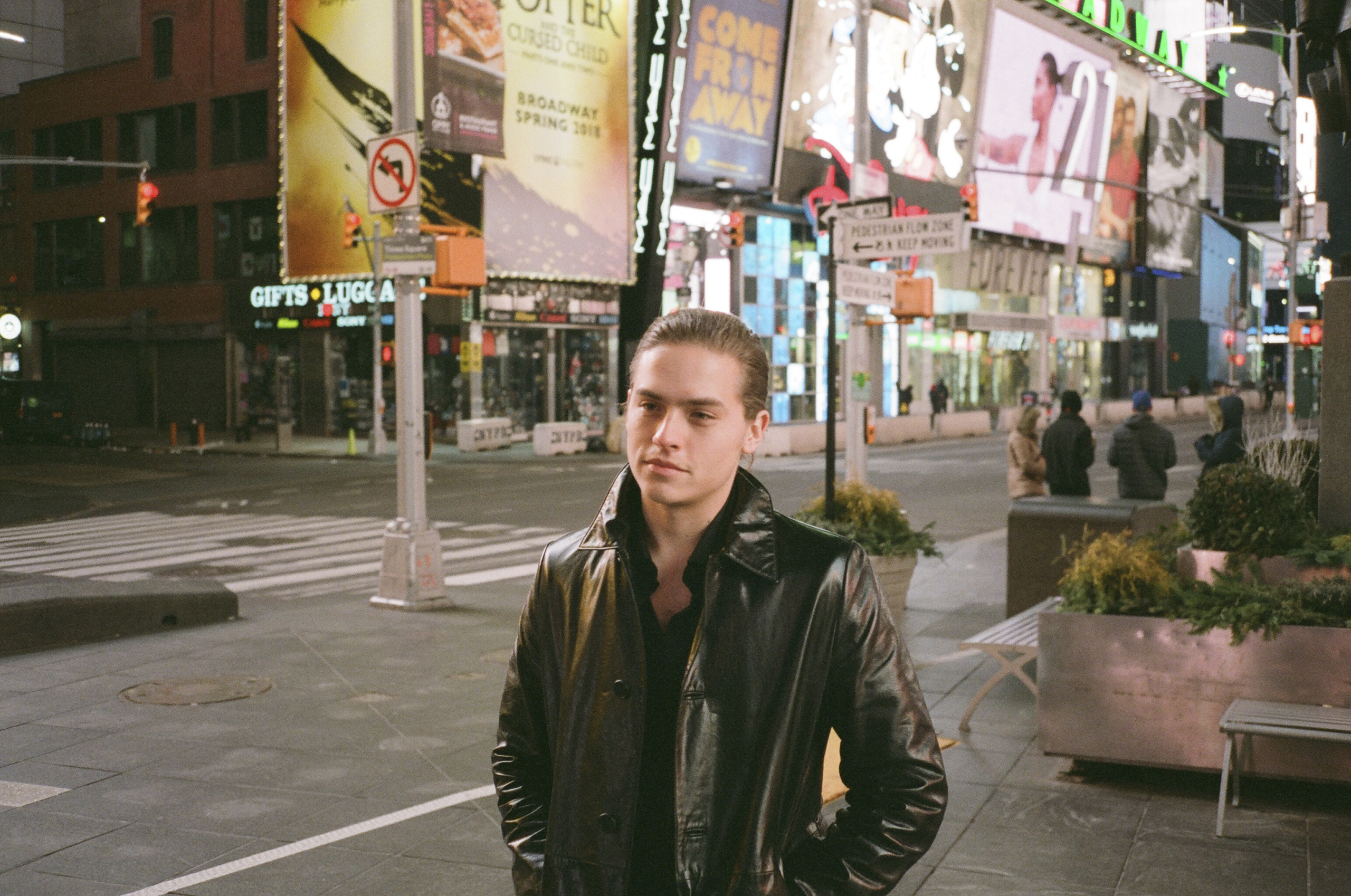
Nowadays, part of my pilgrimage away from acting and then coming back was certainly in an effort to discover myself, what I really loved about acting. I had almost become a bit disenfranchised, as often times actors do when you work on it as a 9:00 to 5:00 and you do it day in and day out for very many years, acting in the same characters. For me, what’s important now is working with good groups of people and living for the experience on set. I found that on Daddy, it was probably one of my favorite set experiences, because of the mix of cast and crew that we had. It’s just a very memorable experience for me. I don’t know if I’m fully strong enough or good enough as an actor to say that I don’t suffer from, for lack of a better word, the vibes on set. I certainly do. I wish that it didn’t.
COPPOLA: Do you think that your training as a child actor, as part of the Disney machine, maybe translated into what you were saying with Paul—when it’s on the clock and off the clock, and there are two very distinct identities that exist between the two?
SPROUSE: I think there are certainly grounds to levy that as a take for sure. I don’t know if I could rightly say if it was being a child actor versus being an actor in general. I mean, this character Paul is so unique. I had to do a lot of individual research to understand what that scenario did and my own understanding of having experiences with individuals too in that field—especially as a performer or an artist, putting on a mask and then taking it off, what that looks like when the job really ends. I think that those kind of distinctions are probably most similar to what I brought to Paul, rather than my past with acting.
COPPOLA: What do you think the landscape will look like for smaller tier art-house work, independently made films?
SPROUSE: I think right now, especially with the environment of COVID and the state of not only the guilds, but also big picture houses moving kind of out of the way, I think that we’re going to see a major resurgence in really interesting art-house content. Also, as an actor, what I’m really intrigued to see is something that I’ve always loved about films, which I feel has kind of been dying off in the last 20 to 30 years: the rise of the director and their muses. You’re seeing more than ever directors working consistently with actors and people that they love and trust and they want to create characters for. I think that kind of kinship is going to see a major resurgence. It’s almost this kind of medieval understanding of the theater troop. When teams trust each other, and they continue to work with each other, then the writers or directors know exactly what the actors could do, or want to try. It allows these actors to diversify themselves in such cool, interesting ways, while at the same time the crew gets to experience very different working conditions and very different stories. That’s always exciting.
COPPOLA: I think that it’s a great time to be releasing work because there is a need for it. There will always be a need for people to watch things and to feel seen. And it feels like a good time to release this film. If you look historically, at times like this, when an industry is totally disrupted—that’s when rules are changed.

